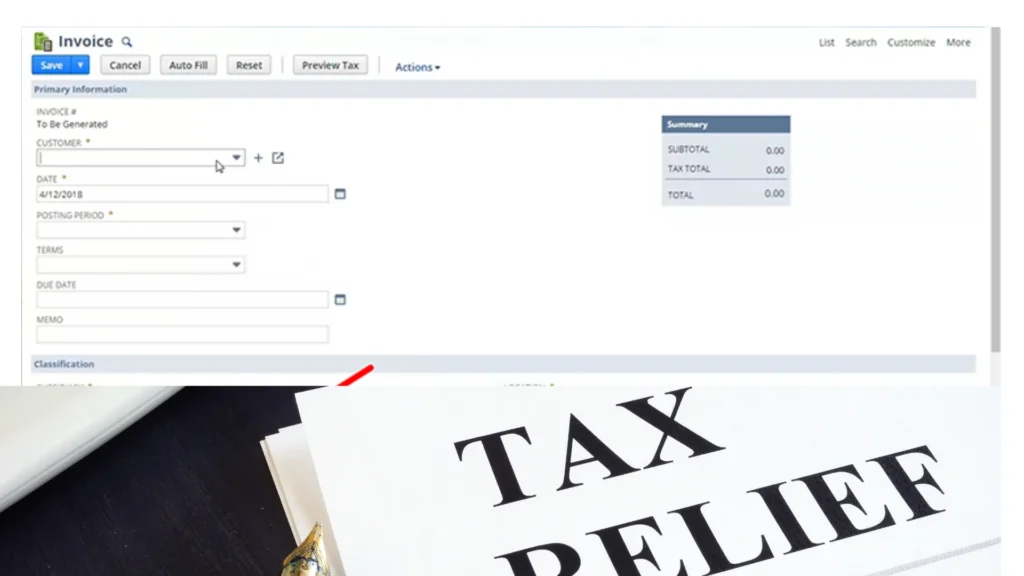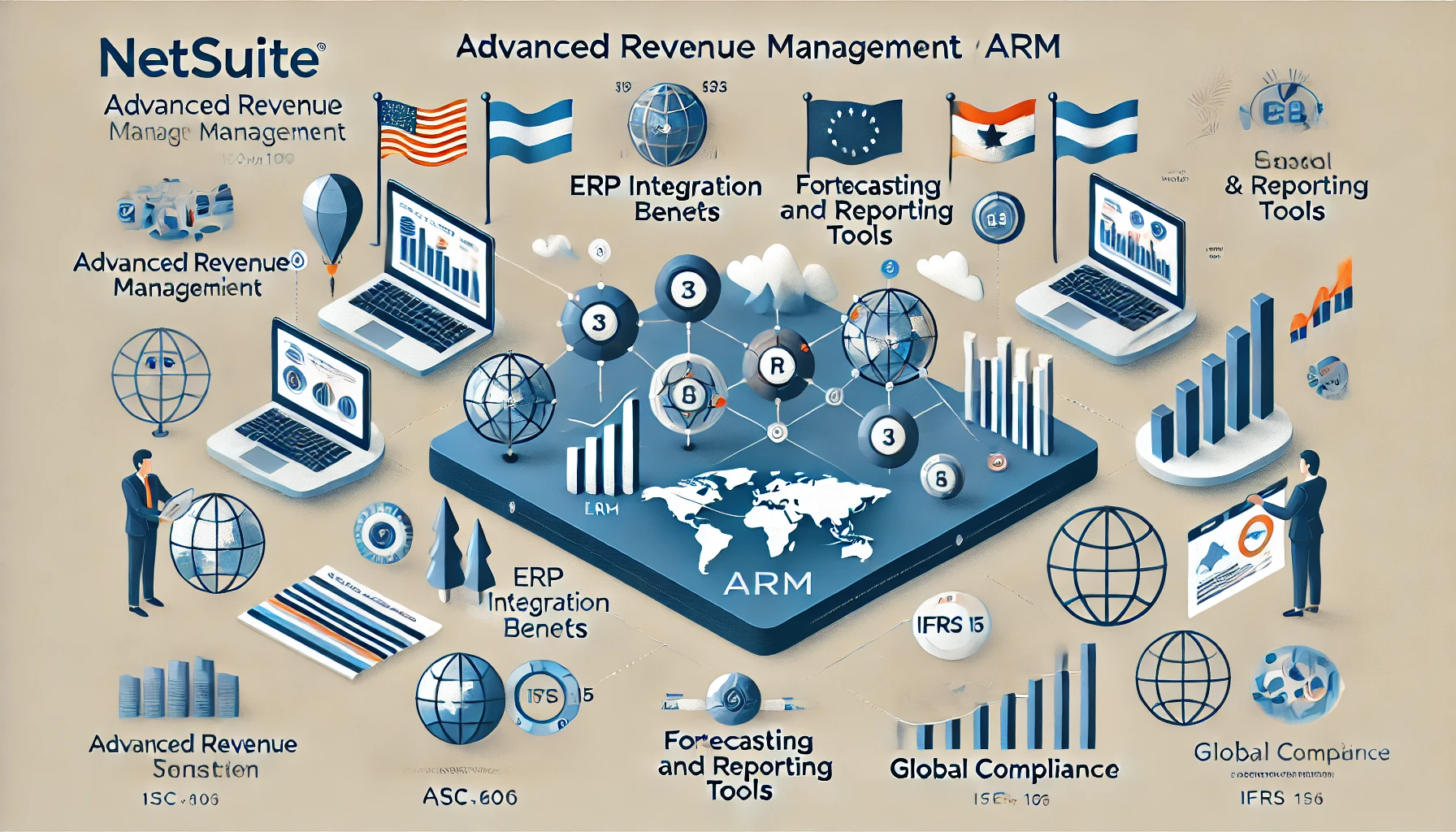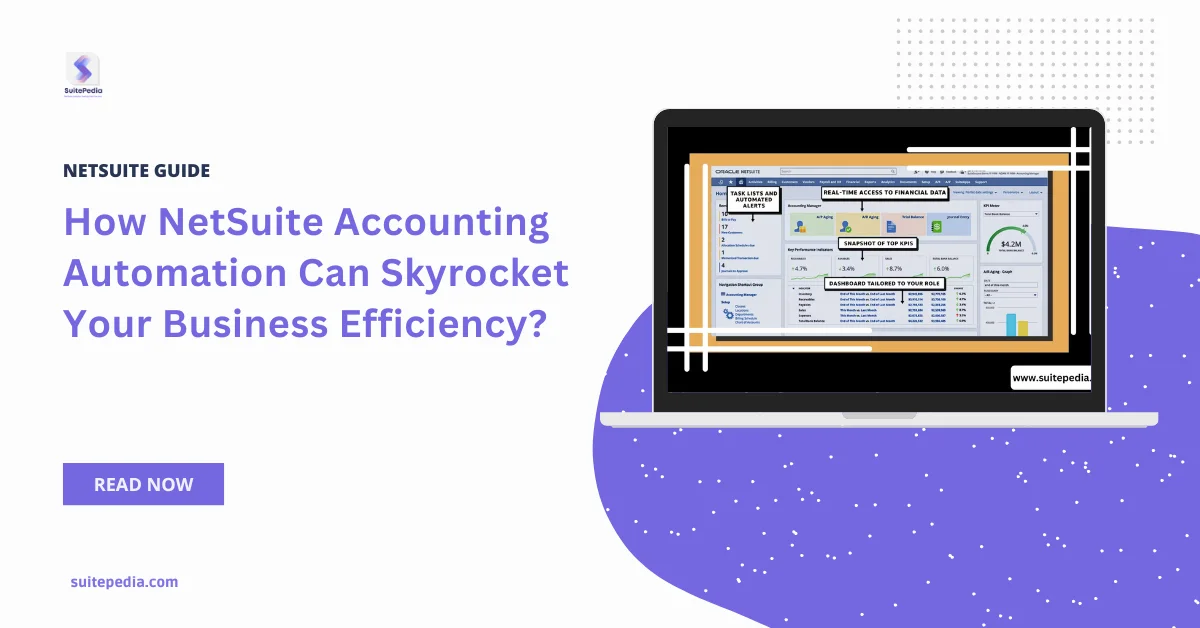Probably the most challenging part of running a business is tax compliance, especially given that rules are getting more complex and companies are going global. NetSuite SuiteTax module is a powerful application for simplifying tax management for businesses of any size. Whether you’re new to SuiteTax or looking for ways it can work for you in streamlining your tax processes, this guide will guide you through features, benefits, and setting up the process.
Table of Contents
ToggleWhat is NetSuite SuiteTax?
SuiteTax is the modern tax calculation engine of NetSuite, through which indirect taxes like VAT, GST, and sales tax can be managed and automated. Unlike NetSuite’s legacy tax system, SuiteTax offers enhanced flexibility, scalability, and compliance with doing business in one or multiple tax jurisdictions.
SuiteTax is highly adaptive to your unique tax requirements and allows you to integrate third-party tax engines or configure natively for specific industry/geo taxes. Thus it ensures accurate tax calculations, reporting, and filing, keeping up with constantly changing tax regulations.

Key Features of SuiteTax
- Global Tax Support
SuiteTax has been designed to comply with multi-jurisdictional tax regulations. SuiteTax gives support if your business is operating within the United States, Europe, or Asia by abiding by country-specific laws and tax rates. It performs intricate requirements like cross border and intra-EU transactions, as well as withholding taxes.
- Native and Third-Party Tax Engines
Either using native tax capabilities within NetSuite or connecting to third-party tax engines like Avalara and Vertex, SuiteTax is flexible enough to provide the service required, especially for businesses with unique tax needs or significant complexity.
- Customizable Tax Codes and Rules
With SuiteTax, you can build and configure tax codes and rules to suit your operations. For instance, you can set up specific tax rules for particular categories of products, types of customers, or regional demands such that the application of taxes is precise.
- Real-Time Tax Calculations
SuiteTax automatically calculates taxes on transactions to ensure that you get the current rates. This reduces chances of errors, brings increased trust in customers, and makes reconciliation easier.
- Detailed Reporting and Filing
SuiteTax offers customized tax reports for a proper reconciliation of transactions with local tax authorities. This will enable return filing along with the trail of audit, thus minimizing chances of penalties due to non-compliance.
- Management of Multiple Subsidiaries
For organizations that are structured as a multi-subsidiary, SuiteTax helps manage corporate tax from a centralized location while taking care of all different tax regulations at every subsidiary level.

Advantages Using SuiteTax
- Better Compliance
SuiteTax stays on top of tax law changes to avoid non-compliance. Its advanced capabilities ensure that businesses meet all the local, regional, and international tax obligations.
- Time and Cost Efficiency
The automation of tax calculation and reporting reduces effort significantly and associated time and costs in maintaining compliance.
- Scalability for Growing Businesses
As the business grows into new markets, SuiteTax scales with ease while accommodating additional jurisdictions and complex tax scenarios.
- Fewer Errors
Manual tax calculations often lead to errors, which can be costly and time-consuming to resolve. SuiteTax automates these processes, ensuring accuracy and reducing risks.
- Seamless Integration
SuiteTax integrates seamlessly with NetSuite’s ERP, CRM, and e-commerce platforms, providing a unified view of your tax data across the organization.
How to Get Started with SuiteTax
- Activate SuiteTax
To enable SuiteTax, navigate to the Setup menu in your NetSuite account. Select Enable Features under Company Settings and activate the SuiteTax module. If you’re unsure about activation, consult your NetSuite administrator or implementation partner.
- Configure Tax Records
Once SuiteTax is enabled, you’ll need to set up your tax records. This includes:
- Tax Agencies: Define the tax authorities to whom your business pays taxes.
- Tax Codes: Create codes related to the tax rates applicable to your products or services.
Nexus: Define the geographical areas where your business is liable to collect and remit taxes.
- Connect to a Tax Engine (Optional)
In case your business has complex tax obligations, you can connect SuiteTax with a third-party tax engine. Generally, most integrations are simple and can be facilitated through NetSuite’s marketplace known as the SuiteApps.
- Attach Tax Rules to Transactions
SuiteTax will let you apply tax rules to the transactions as and according to your choice. For example, tax codes can be applied at the customer level, item level, or even location level within the NetSuite platform.
- Test Your Setup
Before going live, it is always a good idea to test your SuiteTax configuration. Run sample transactions and ensure that taxes are calculated correctly. This helps ensure everything is up and running and in place.
- Generate Tax Reports
SuiteTax offers numerous tax reports on transaction-by-transaction tax summaries and audit-ready documents. Familiarize yourself with these types of reports for smooth filing processes.
SuiteTax vs. Legacy Tax Engine
SuiteTax offers quite an impressive advancement over the legacy tax engine. While the legacy system can provide something as elementary as tax capability, SuiteTax is designed for the complex, global business environment of today. It supports multi-jurisdictional compliance, advanced reporting, and real-time calculations. Moreover, SuiteTax integrates with third-party engines for highly customized tax needs, which makes it more flexible and scalable.
Global tax handling is less flexible in the legacy tax engine, and the functionality is not customizable to such an extent as in SuiteTax. Businesses expanding internationally or dealing with intricate tax scenarios will find SuiteTax a far superior solution as it is customized for addressing modern regulatory requirements and ensuring compliance on a broader scale.
Common Use Cases for SuiteTax
- E-commerce Businesses
For online retailers selling across multiple states or internationally, SuiteTax provides automated calculation of sales tax, VAT, and other indirect taxes.
- Multi-National Businesses
Businesses with operations in many countries appreciate SuiteTax’s capabilities to handle diverse tax regulations and rates across different jurisdictions.
- Professional Services
Companies providing services across jurisdictions can leverage SuiteTax for compliance with local tax authorities.
Best Practices for Leveraging SuiteTax
- Stay Updated: Make sure that the tax codes and rules are updated regularly in line with the latest regulatory changes.
- Use Professional Services: Bring in NetSuite experts or an implementation partner to help optimize your suite tax configuration.
- Train Your Team: Educate your accounting and finance teams about SuiteTax’s capabilities and reports.
- Leverage Automation: Ingrain full automation of your financial workflows by using SuiteTax in coordination with other modules of NetSuite.
Conclusion
NetSuite SuiteTax is the game-changer in companies dealing with tax compliance issues. With the adaptability to every tax regulation, automation of the calculation, and integration with third-party solutions, it is really a must for any company regardless of its size.
By implementing SuiteTax, you can ensure greater accuracy, save time, and be ensured of compliance, allowing your business to expand rather than focusing on tax problems. When the moment has come for you to simplify your company’s tax practices, the tools and flexibility that SuiteTax presents can help you succeed.



